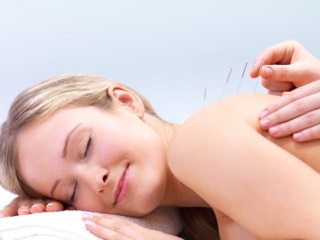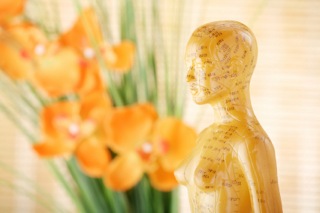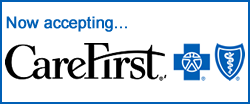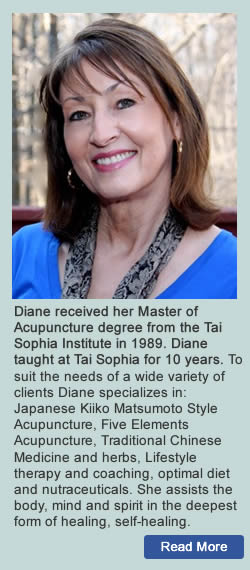WHAT DOES ACUPUNCTURE TREAT?
Because acupuncture can help so many types of conditions, I always find it hard to answer the question, “What does acupuncture treat?”
Before addressing all the “whats”, let’s look at the big picture: where does acupuncture fit into your overall healthcare picture?
 Just as you have a family doctor or dentist, an acupuncturist should be part of your team. Getting treatment before you need it and having regular tune-ups will go a long way towards preventing problems. First and foremost, acupuncture is great preventive medicine. As an old proverb states, “Don’t wait until you are thirsty to dig a well”.
Just as you have a family doctor or dentist, an acupuncturist should be part of your team. Getting treatment before you need it and having regular tune-ups will go a long way towards preventing problems. First and foremost, acupuncture is great preventive medicine. As an old proverb states, “Don’t wait until you are thirsty to dig a well”.
Regular “tune-ups” can make it much easier to shake off a cold, stress or an injury.
Have you ever found your favorite jeans baggy and stretched out of shape? Though they aren’t dirty, you throw them in the washer to bring them back to their original state. Without the obvious signs of pain or illness, we may not even recognize that we could feel so much better. Acupuncture keeps you feeling your best!
If you are looking at this, you probably have a health concern. Here is a partial list of ways that acupuncture can help you.
Acupuncture and herbs are a premier treatment for colds and flu as well as in building immunity against them. Asthma and allergies can be greatly improved, even eliminated.
Those suffering from depression, anxiety and related issues may find great relief from acupuncture.
Chronic pain patients can have drug-free, pain-free lives. Acupuncture is amazing for neck and back pain, even damaged discs and arthritis, tension headaches and migraines.
Acupuncture is excellent medicine for all types of women’s health issues: infertility, menstrual pain, PMS, endometriosis, menopausal symptoms, morning sickness, hot flashes.
Acupuncture can also induce labor and help mother recover fully and more quickly.
Acute sprains and strains as well as sports injuries are routinely treated. Many professional sports teams use acupuncture for quick recovery from injury.
A little known use is for pre and post-surgical support. Acupuncture not only alleviates pre-surgery stress and anxiety, but retards bleeding and speeds recovery from the surgery and anesthesia. It supports the lungs and restores bowel motility, which can be a real problem after anesthesia and pain medications.
Acupuncture is becoming more and more well-known for it’s role as an adjunct therapy for cancer patients. Acupuncture relieves side effects such as pain and nausea and helps reduce associated stress.
Digestive diseases such as Crohn’s, IBS and ulcerative colitis are helped.
The grip of addictions of all types; drugs, alcohol, tobacco or food can be loosened by acupuncture. Many drug treatment centers use acupuncture as an integral part of their programs.
ACUPUNCTURE FAQs
WHAT IS ACUPUNCTURE?
HOW DOES ACUPUNCTURE WORK?
 Acupuncture is an organized system of traditional medicine. Did you know that acupuncture has been practiced continuously for the last 2500 years, treating more patients than any other form of medicine? Like Western medicine, acupuncture is used as general or family healthcare and has many areas of speciality as well.
Acupuncture is an organized system of traditional medicine. Did you know that acupuncture has been practiced continuously for the last 2500 years, treating more patients than any other form of medicine? Like Western medicine, acupuncture is used as general or family healthcare and has many areas of speciality as well.
Speaking of needles! The needles I use are sterile, single use and hair-thin. They are quite different than the needles with which most of us are familiar!
I use Japanese acupuncture needling techniques, where the goal is no pain. There is slight or no sensation from the needles and soon after needling, you will feel calm and relaxed!
Detailed diagnosis and treatment planning are part of acupuncture. The acupuncture needles are placed in areas chosen according to your personalized treatment plan.The needles activate your body’s natural healing processes.
HOW DOES ACUPUNCTURE WORK?
Centuries of practice, research and development by acupuncturists has created an intricate system based on a deep understanding of the body’s natural functioning and healing ability. Traditional acupuncture focuses on qi, the energy or power which is behind all mental and physical functions.
The body’s qi system is a complex network of energy pathways (called meridians) which govern the physical, mental and emotional functions. By addressing the root causes of imbalances in this network acupuncture assists the body to heal damage and to resolve symptoms, rather than to simply cover them up.
In my personal experience as a patient for thirty years, acupuncture has kept me healthy physically, emotionally and spiritually. My clients, in addition to improvement in their main complaints, report more energy and emotional well-being. They also stay healthy when others around them are suffering from colds or flu.
Acupuncture also helps one accept life’s ups and downs with more ease. Conversation with your practitioner creates the time to stop and reflect on your life. It is as much as part of the healing process as the needles.
Although acupuncture is a very gentle and natural form of healing, it can have powerful effects. My clients and millions of others are sold on it’s benefits. Find out why for yourself!
For an appointment, call me at 443-768-8427.
Diane Huey, M.Ac., Licensed Acupuncturist
Other benefits you can receive from acupuncture treatment:
PREVENTIVE CARE: You don’t have to be sick and suffering in order to receive help. Be and stay healthy with the original preventative medicine: acupuncture.
You will have greater immunity with fewer/milder illnesses; improved stamina and energy; be more calm and have an uplifted mood.
You will need less or no medicine. Many patients find they are able to avoid previously scheduled surgery. You may find your medical bills going down!
RELAXATION AND WELL-BEING: Acupuncture treatment can be the “pause button” in the midst of your busy life. Your treatment is a time that is just for you, a time to pause and reflect on life.
Acupuncture is a great way to feel relaxed, rejuvenated and connected to the joy of living. You may also see a change in your outlook on life, an improvement in relationships and general satisfaction with life.
And relaxation is more than just a feeling; the ground-breaking work of NIH researcher Candace Pert, P.hD (candacepert.com) demonstrates how “molecules of emotion” or neuropeptides can be an important factor in the prevention or cause of disease.
The neuropeptide transmitters travel between receptors in the brain and the body, transmitting either helpful or destructive messages from the emotional level and thus influencing physical functions. Dr. Pert’s research provides a Western explanation for the mind-body connection understood for centuries in the East.
BE “IN THE ZONE”: In Asian medicine, true relaxation encompasses a heightened sense of alertness or awareness; a state of being where one’s skills and abilities are most accessible.
This balanced state is comparable to what the sports world calls “the Zone.” Whether you want to naturally enhance your abilities as an athlete, performer, business person or simply want to get and give the most in life, acupuncture can help you to stay at the top of your game.
HEALTHY AGING: The ancient sages who developed acupuncture were reknowned for their youthful longevity. They emphasized not only the length but the quality of life and the ability to maintain full mental and physical functioning throughout one’s lifespan.
Acupuncture is a great anti-aging medicine that adds to your quality of life, no matter what your age in years!
SUPPORT: Acupuncture eases the stress of difficult life transitions and is a powerful adjunct to chemotherapy, radiation therapy and surgery.
To find out if acupuncture is right for YOU, call me for a free personal consultation at 443-768-8427.
ACUPUNCTURE FAQ
DO THE NEEDLES HURT?
The most frequently asked question I get about acupuncture is “Does it hurt?”. Acupuncture needles are about the thickness of two human hairs with finely polished tips. A friend of mine insists they should be called filaments, not needles. They do not resemble the syringe-type needles that are all too familiar to most of us!
The style of needling used also determines the degree and strength of sensation. Some styles are very vigorous, with the goal to create a strong “da chi” or needle sensation.
I use the Japanese style of needling, where the goal is to needle without any sensation to the patient. You may occasionally feel an ache or tingle which typically lasts no more than a second or two.
In reality, acupuncture is a very pleasant experience. In addition to improving one’s health, treatment provides relaxation and a sense of well-being. My clients come in saying things like “I have been looking forward to this all week!” or “I couldn’t wait to get here today.”
IS ACUPUNCTURE SAFE?
The needles which I use are manufactured to exacting stardards and are sealed in sterile packaging. Needles are used one time and then discarded in a medical biohazard container.
Acupuncture is an inherently low-risk form of medicine. Negative side effects are infrequent and typically limited to a small bruise or a drop of blood.
The more common type of side effects are positive ones. For example, the man who wants help with back pain and finds relief not only for his back but for his depression; the woman suffering from migraine headaches is also freed from painful periods.
HOW DOES ACUPUNCTURE WORK?
Ultimately, the real question for me is “How does the body work?”. Acupuncture is an intricate system based on a deep understanding of the body’s natural healing ability and the qi, or power which is behind all mental and physical functions.
The body’s qi system is a complex network which governs the physical, mental and emotional functions. By addressing the root causes of imbalances in this network acupuncture assists the body to heal damage and to resolve symptoms, rather than to simply cover them up.
HOW WAS ACUPUNCTURE DISCOVERED?
Our culture has developed complex state-of-the-art technologies by building on the work of those who came before. Others developed an acute ability to use the five senses to observe and understand the human mind and body. This knowledge has accumulated through the centuries, with each age and geographic region making its unique contributions.
One example is the revered Chinese doctor Zhang Zhongjing, who lived around 200 AD. His village suffered a great epidemic and that experience led him to develop treatments for infectious diseases which are still applicable today.
This process of learning and developing new treatment strategies continues today. I am honored to receive some of the latest developments from today’s master acupuncturists in Japan through the teachings of Kiiko Matsumoto and David Euler (www.kiiko.com).
WHAT IS QI?
A concept central to acupuncture is that of qi (chee). It is also sometimes spelled as ch’i.
The closest word we have in English is energy, but this is a bit misleading because qi is not only energy, since it is responsible for the matter and form of our bodies as well. Movement is an implicit part of qi; one way that acupuncture maintains health is by removing any blocks to the natural movement of qi.
Documented Western-style research has been able to trace the pathways where the qi concentrates in the body (called meridians) by injecting radioactive isotopes and tracing their movement.
Other biometric testing has demonstrated a lowered galvanic response at the site of the acupuncture points (small areas along the meridians where the qi collects and where the needles are inserted).
Research also demonstrates that the points are hard-wired into every human being and that the point locations are identical from person to person.
These are just a few of the many scientific proofs that qi exists. For me, the proof is in the clinical results that I have seen in my patients and in the positive effects on my health from the treatments which I have received.
To find out if acupuncture is right for YOU, call me for a free personal consultation at 443-768-8427.
The information contained herein is not medical advice, nor should it substitute for medical care.
















